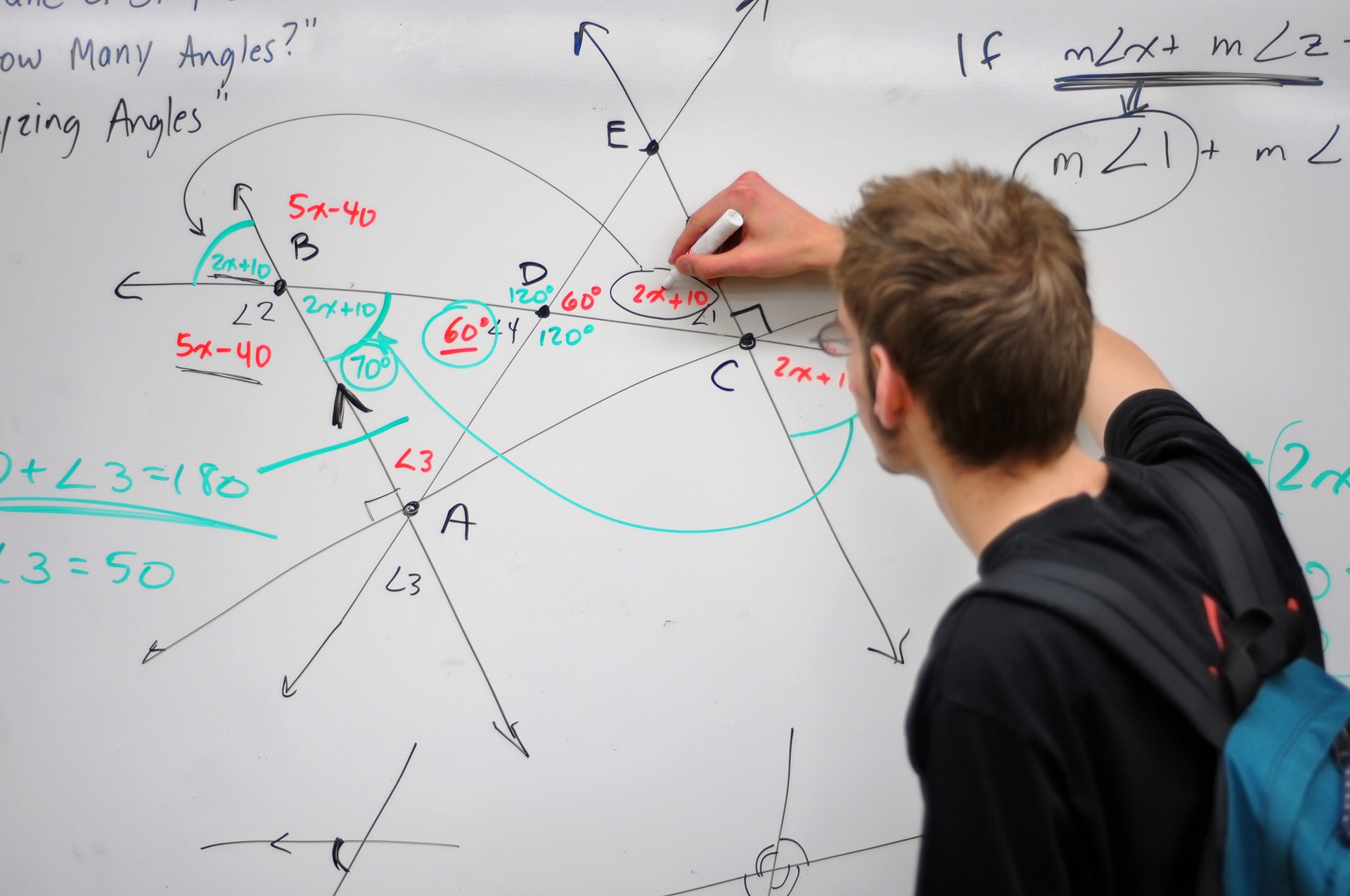Maths helps to develop technical skills and methods such as pattern recognition, working systematically, visualising solutions and using logical reasoning. It builds transferrable skills that include data analysis, organisation, critical thinking, time management, decision making and communication.
This is the value of a maths degree. It equips you with key skills and knowledge to play a part in the future success of many different industries, organisations and projects.
It’s why maths graduates have a wide choice of options, and go on to have highly successful and rewarding careers in computing, accounting, engineering, science, banking and business.
So what are the best courses to study if you want to use your maths skills to their full advantage?

What maths degrees to choose
A standard maths degree usually consists of a mix of pure maths, statistics and applied maths. You’ll cover a range of topics in your first year, such as calculus, algebra, probability, statistics, geometry, vectors and computational maths.
Further along in your degree you’ll have the chance to specialise — so, for instance, you might want to focus on computational maths, and take more modules in this field to focus on a particular career.
Instead of a standard maths degree, there are some specialised options on offer that focus on fields such as pure maths, applied maths or statistics.
However, these specialised courses will also require you to study broader topics — so there might not be much difference between a standard maths degree that allows you to specialise, and a specialised maths degree where you also study standard modules.
As you think about the maths degree you might choose, keep in mind the subjects and activities you enjoy, and the work you believe will fulfil you.
the world of study
With a maths degree, you can be in demand across all kinds of industries around the world, from finance and technology to statistics and engineering — and beyond.
Careers
Finance
finance
Careers
Careers in finance are an ideal opportunity to apply your maths skills to the real world. Finance has many fields that offer openings, including accountancy for businesses, public sector and charities, actuarial work calculating risk for insurance, investment management for individuals and organisations, and investment banking for buying and selling on financial markets.
finance
Roles
Careers
IT and software
it and software
Careers
Many IT and software development companies need maths graduates, particularly in computer programming and software engineering. A background in maths is an excellent foundation for software engineering, for example — but it’s a good idea to take some specialised programming and software development courses to build some training and experience.
it and software
Roles
Careers
Statistics
statistics
Careers
A maths degree is the perfect grounding to be a statistician, especially if your degree specialises in statistics. Statisticians collect, analyse, interpret and present statistics and quantitative data, and work across many different fields, from finance, government and healthcare to media, pharmaceuticals and sport.
statistics
Roles
Careers
Engineering
engineering
Careers
The problem-solving and analytical skills developed in a maths degree are perfect to begin a career in engineering. However, specialist engineering skills and knowledge will also be required, so consider courses, modules or internships and work experience to build your engineering education.
engineering
Roles
Some other articles